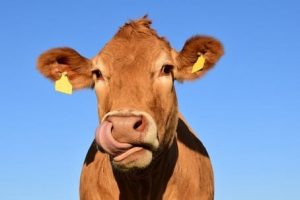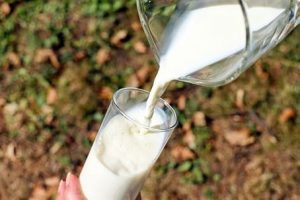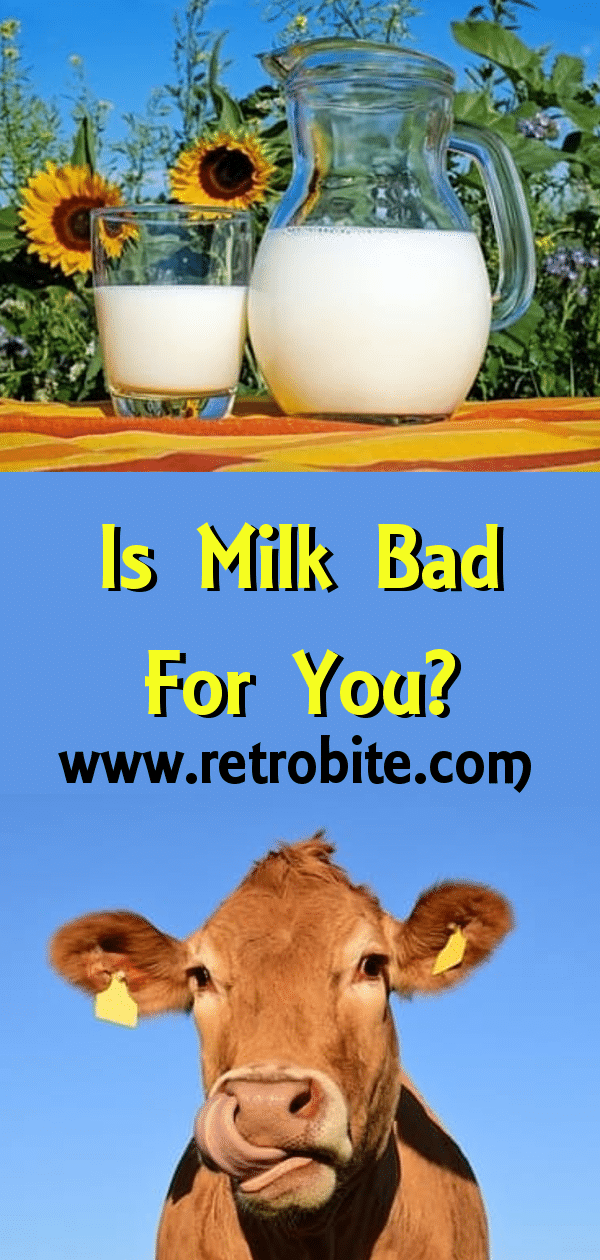Is Milk Bad For You?
A Look At How Sharing Food Advice On Social Media May Be Bad Advice.
Is Milk bad for you? I recently came across a promotional clip that was shared on social media recently which claims “milk is more harmful than helpful”. It claimed that milk is bad for you and can increase the chance of fractures by up to 50% and it promotes mucus which experts believe contribute to constipation, anemia, ear infections, allergies and diabetes. That consuming milk increases your IGF-1 levels and it might also contribute to several other cancers. It followed on with the statement “clearly milk is not fit for human consumption”. The clip then claimed that “big dairy” is spending millions to hide the fact people can get all their protein, calcium and potassium needs from fruits and vegetables.
My problem with advice like this is that people on social media tend take it at face value without looking in to see if this information is true. The fact that the information given contained the word “might”,sounded warning bells for me. I’m a firm believer that eating natural foods with very little processing, eating a well balanced diet and consuming fats and sugars in moderation is the key to maintaining your health. When I see someone recommending to cut something out of my diet but then putting forward information to scare me from consuming a certain food I become suspicious.
So I decided, instead of thinking this clip was rubbish I would look into it and see what I could find for myself and to figure out, is milk bad for you.

Milk can increase the chance of fractures by up to 50%
This one I found interesting as growing up in Ireland we were always told that bones need calcium and that a glass of milk a day was great for building bones. Were we all lied to? Is milk drastically increasing the risk of fractures by up to 50% as this clip said?
I searched and searched to find supporting medical reports that showed milk increases the chance of fractures by up to 50% and I indeed did find some proof. One of these reports carried out a study on teens in the USA monitored them over a 22 year period to see if milk consumption increased the risk of hip fractures. Their findings found that teen males who drank a glass of milk a day had a 9% increase in hip fractures while female teens did not see any increase in hip fractures drinking a glass of milk a day.
Further looking into the claim milk contributes to bowel disorders, many reports that I came across indicated that lactose in dairy was the main causes of bowel disorder but that bowel disease is dependent on your genetic make up. Reports indicated that certain individuals from ethnic backgrounds were prone to bowel disease caused by lactose. The findings of this report indicated that groups with a certain background were more prone to bowel disorder but the overall findings indicated that dairy consumption may decrease bowel disease while dairy restriction may have an adverse effect on bowel disease.
I have heard before that milk can prevent the absorption of Iron due to calcium but I have never heard that milk can cause anemia. I read many documents and articles which claimed milk caused anemia because it did not have iron so by having an iron rich diet this was preventable. This report found that milk or calcium fortified food did not prevent the absorption of iron from a 4 day period. The report indicated that many tests carried out before on the affects of calcium on the absorption of iron were done on single meal test subjects. This report carried out over a 4 day period found that calcium had no affect over a longer period and with more meals.

Finally I had a look into the claim that milk increases mucus in the body and this had an affect of increasing infections. I found numerous reports that indicated milk had no effect on increasing mucus in the body at all. This article I found by the Australasian Society of Clinical Immunology and Allergy (ascia) summed up most of the research I read. In their article they clearly state that milk does not increase mucus in the body. Milk has no affect on causing middle ear infections and eliminating milk does not help with allergies. This report I found which infected test subjects with a rhinovirus, a viral infection, to test the effect of milk on mucus production. The findings indicated that they found no association with mild or dairy products and mucus production.
Last but not least consuming milk increases your IGF-1 levels
I’ll admit I never heard of IGF-1 levels until I looked into it, they sounded really important though. So what I found out is that IGF-1 is a hormone that promotes growth in the body and is necessary for growth in children and teens. As we age IGF-1 production levels decline but reports have shown that increased levels of IGF-1 in adults increases the risk of cancer. So maybe this claim may have some truth but how does milk cause IGF-1 levels to increase?
I found out that cows which are treated with Recombinant bovine growth hormone (rBGH) a synthetic hormone which promotes milk production increases the level of IGF-1 in milk. By consuming this milk IGF-1 levels in adults rise and this increases the risk of secondary cancers. Further research has shown that rBGH is used widespread in the USA to increase dairy yield but it has been banned in Europe since 1999. So this information that milk increases IGF-1 is true to an extent but it is only an issue in countries that use rBGH or countries that import dairy products that use this growth hormone to promote milk production.
So what did I get from my little research project?
Is Milk bad for you? Without doubt this experience strengthened my opinion that people need to stop believing everything they read on social media. There are people and organisations out there who will use false information or information that is highly bloated to scare you and me into believing what they say. When it comes to diets people need to do their own research. There are plenty of documents out there that will give you the information you need to make an informed opinion rather that taking someones word.
Do I think you should believe everything I am saying here? Of course not, I would highly suggest you take this information and read up yourself and make up your own mind, is milk bad for you.
I believe that sharing of dietary information on social media without first finding out if it is true can be dangerous. Many of the reports I read suggest that eliminating foods can have an adverse effect and if you share information that is false you could be causing harm to someone else.
Is milk bad for you? In my opinion if you believe milk is making you sick, go talk to a doctor or a professional. Find out exactly what is causing your problems rather than taking drastic actions such as cutting foods out of your diet.
From the research I have read I don’t believe milk is bad for me. I believe in certain cases it can cause reactions to people who are allergic to milk but I also believe the benefits of milk outweigh the negatives.
Most importantly, what do you think. Is milk bad for you?
Don’t forget to visit my blog for more articles and recipes.


Love your article on Milk. I am coming to the end of first year of three year course in nutritional therapy and a big chunk of study involved looking at the source of findings like this one both on line and in print media. Well done!
Thanks very much. Really appreciate it.
Of course milk is bad for you,everyone knows that !
My Mother drank gallons of milk all her life and I believe that,s what killed her in the end.
The sad part was that she was only 95 when she died [from a fall ]
What more “proof” could you need !
Milk should be banned right away.